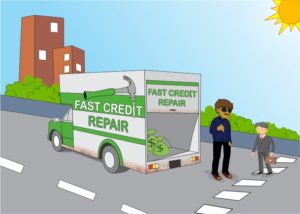Your Financial Afterlife: Preparing for the Inevitable
 If you have a family, being financially healthy isn’t just for you. It also helps you to provide for your family. Even when your children have grown up and left home, you still want to make sure you can be there for them when they need it. You might even be considering how you might help them after you’ve gone. When it’s your time to go, perhaps you’re hoping to leave your family in a financially stable position. Although you hope you won’t die until you reach old age, you never really know when it might happen. So it’s always best to be prepared, especially if you have a young family.
If you have a family, being financially healthy isn’t just for you. It also helps you to provide for your family. Even when your children have grown up and left home, you still want to make sure you can be there for them when they need it. You might even be considering how you might help them after you’ve gone. When it’s your time to go, perhaps you’re hoping to leave your family in a financially stable position. Although you hope you won’t die until you reach old age, you never really know when it might happen. So it’s always best to be prepared, especially if you have a young family.
Take Out Life Insurance
If you have a family and you work, your family relies on your income. Some families decide to live using only one income, even if they have two, so that it’s not so difficult to deal with if one income is lost. However, many families need to make the most of any income they have. Whether or not you’re the primary breadwinner, the loss of your income could make a big difference to your family, especially when they’re grieving. Using a site like insurance.me to find the perfect life insurance helps to protect your family. Some employers offer life insurance as a benefit, but if yours doesn’t, you should consider taking it out yourself.
Write a Will
Writing a will is one of the best things you can do to make sure you’re prepared for the end of your life. Since you can’t usually know when you’re going to die, it’s important to keep your will updated so that it reflects your wishes. You might change it at different stages, like if one of your children moves out or you get a new grandchild. You can easily find templates and will writing kits to make things easier. However, you might want to use a lawyer to help you write your will, especially if you want to set up something that isn’t straightforward.
Create a Funeral Plan
Funerals can actually be very expensive, so it’s worth thinking about how you might prepare for that. You might like to come up with some ideas or even instructions on how you want your funeral or memorial service to go. In terms of finances, it’s a good idea to have funds specifically intended to pay for it. You might have some savings, or you could consider paying for a funeral plan or insurance. These are intended to cover the costs of funerals to make the burden easier on your family. You might also want to take other financial considerations into account, like buying a burial plot.
Keep Debts Organized
When you pass away, remaining debts might have to be paid from your estate. To make things easier for your heirs, it’s a good idea to organize your debts and bills. This will mean they don’t need to spend too much time figuring out what is owed and paying it off.
Planning your finances for after your death is just as important as paying attention to them while you’re alive. Look after your family by being prepared.
















